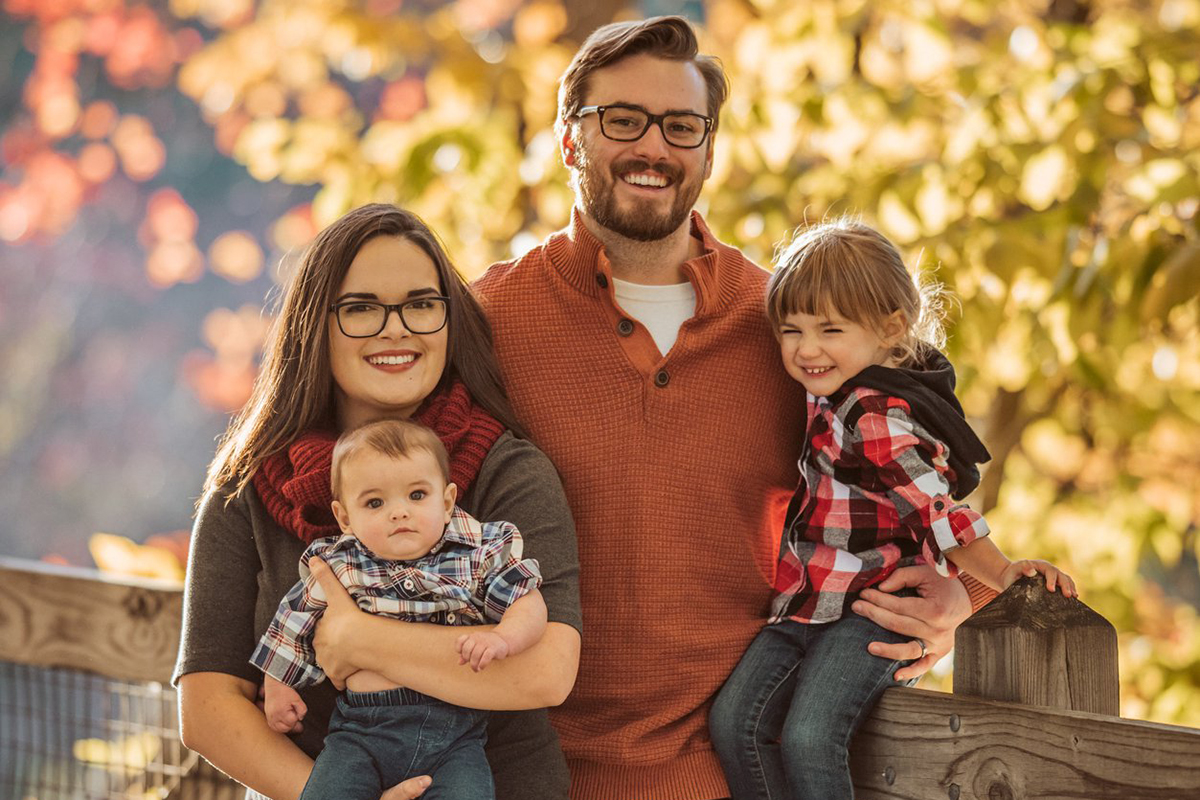This Is What Happens When You Become Debt-Free at a Heart-Wrenching Cost

When it comes to getting a large financial windfall from a relative, you hope it’s from a long-lost uncle you’ve never heard of. Unfortunately, it rarely happens that way.
Most of the time, the payout comes with a painful loss and a range of feelings — even if you decide to use it for something your loved one would be proud of, like paying off student loans.
Rachel Smith and her husband, Travis, spent 14 months cutting back and working extra to pay off their student loans. When Rachel’s dad died unexpectedly, her mom gifted them part of the life insurance payout so they could become debt-free.
“I just remember feeling so confused, excited, happy, angry,” Smith said. “I mean, it was a full spectrum of emotions.”
The payout lifted the burden of their debt, but it also marked the start of a journey with no clear action plan or timeline for completion.
How They Started Paying Off Their $185K Debt
Rachel and Travis met as engineering students in Michigan. Rachel was an out-of-state student from Anchorage, Alaska, and took out $25,000 in student loans. Travis was an in-state student and thought he had about $60,000 of debt at graduation in 2015; he didn’t pay much attention to the exact balance.
Weeks after getting married in June 2015, they calculated their total debt and found Travis’ estimation had been off by over $100,000.
Their actual student loan debt was $185,000.
“I’m like, ‘$50,000 to $60,000, that’s a lot, but we’ll deal with it. We’re both engineers,’” Rachel said. “And then when it was that much more, it just shattered our world.”
To top it off, they were expecting their first child in a few months.
They committed to paying off their student loans as quickly as possible. They waited until their daughter, Riley, was born and started putting all their extra income toward their loans in January 2016.
Thanks to a gift from her mom from her grandmother’s estate, Rachel knew she would be able to pay off $20,000 shortly after her graduation later in 2016.
The Smiths didn’t ease into a frugal lifestyle. They stopped going out, began budgeting, planned meals around sales and even made their own baby food.
They lived with family for a few months while they looked for a cheap rental. It allowed them to wait for something at the right price.
“It was a very dated rental,” Rachel said. “You would look at that place and go, ‘There’s two engineers living there?’”
They were putting thousands of dollars every month toward their loans, and they were ready to continue it for years to come.
After only 10 months of focusing on their debt, they’d paid off over $56,000, not including the gift from Rachel’s grandmother.
The Windfall She Never Wanted

Rachel’s dad had no known health issues, so when he was hospitalized in November 2016, no one expected he’d be gone just a few days later.
Rachel and Travis used their $3,000 emergency fund to purchase last-minute tickets to Anchorage and cover meals while they were there. When they returned to Michigan, they went right back to their frugal lifestyle.
A few months later in May 2017, Rachel’s mom called and said she wanted to pay off the rest of their loans.
Rachel knew her dad had life insurance. She thought she might get something someday when her mom died, but she never expected anything so soon or of that magnitude.
“I’d literally put in an additional payment that day for a few hundred dollars,” Rachel said. “I mean, we’re talking hours before.”
Rachel made sure her mom was positive about her decision. Then, she made a lump-sum final payment of $109,000 the next day.
But it seemed almost like blood money to Rachel.
“I felt like, ‘This is so wrong,’” she said. “Like my dad has died, and now my loans are getting paid off.”
Using Money to Honor a Legacy
Rachel felt guilt for a long time. She would’ve gladly spent years paying back the loans to have her father back.
Travis struggled too, but in a different way. The majority of their student loans were his, and this man he barely knew paid them off.
With their student loans gone, Rachel felt like the real debt began: the debt of obligation she felt to use her money even more responsibly.
They tried to do things with their money that would honor Rachel’s dad, including buying a house in a neighborhood where their kids could go to a good school. But grief and guilt intertwined with the joy that their investments brought.
One of the ways Rachel processed her guilt was through her blog.
Before her dad died, she had started a blog to chronicle her debt-payoff journey. She thought it would take several years. When her windfall came, she felt like she was a failure, like she couldn’t finish the race she’d started running.
While it took time for her to reconcile her real situation with her planned one, her blog gave her a place to grieve and process her loss through writing. It eventually gave her the foundation to leave what she says was a toxic work environment. She now works from home as a freelance writer.
It’s another thing she can thank her dad for.
The biggest factor in resolving their guilt was time. Now, Rachel and Travis view their financial decisions not with guilt or obligation, but as a part of her father’s legacy.
“It’s pretty much taken until this year to be like, ‘This is OK,’” Rachel said. “This happened. It’s OK to make sure you’re making the most of it and do things that do honor him.”
Jen Smith is a former staff writer at The Penny Hoarder. She gives money-saving and debt-payoff tips on Instagram at @savingwithspunk.


















